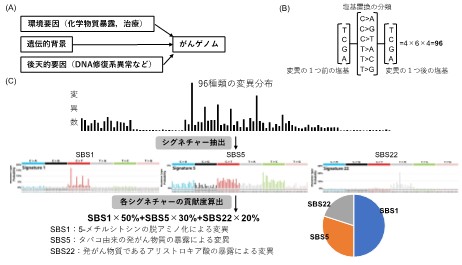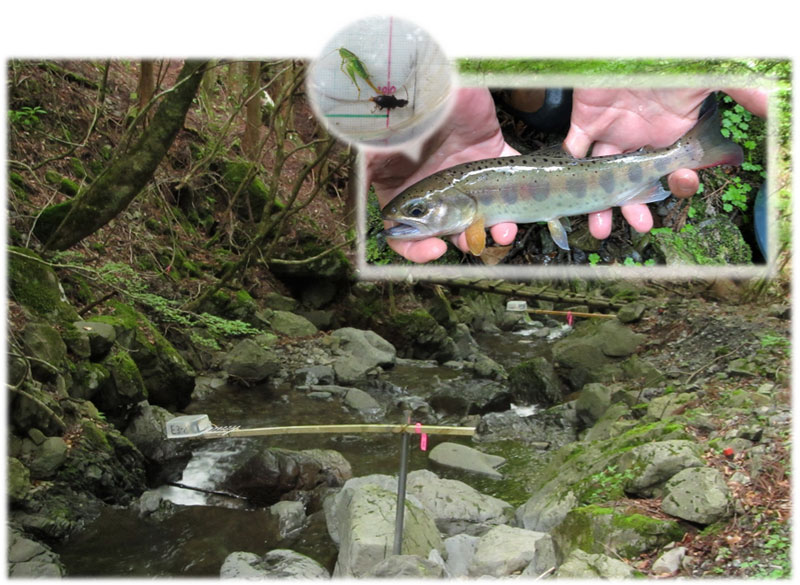2025-05-21 国立がん研究センター,東京大学医科学研究所

図1 変異シグネチャー(Single Base Substitution Signature)解析の仕組み
<関連情報>
- https://www.ncc.go.jp/jp/information/pr_release/2025/0521/index.html
- https://www.nature.com/articles/s41586-025-09025-8
大腸がんにおける突然変異過程の地理的・年齢的変化 Geographic and age variations in mutational processes in colorectal cancer
Marcos Díaz-Gay,Wellington dos Santos,Sarah Moody,Mariya Kazachkova,Ammal Abbasi,Christopher D. Steele,Raviteja Vangara,Sergey Senkin,Jingwei Wang,Stephen Fitzgerald,Erik N. Bergstrom,Azhar Khandekar,Burçak Otlu,Behnoush Abedi-Ardekani,Ana Carolina de Carvalho,Thomas Cattiaux,Ricardo Cortez Cardoso Penha,Valérie Gaborieau,Priscilia Chopard,Christine Carreira,Saamin Cheema,Calli Latimer,Jon W. Teague,Anush Mukeriya,… Ludmil B. Alexandrov
Nature Published:23 April 2025
DOI:https://doi.org/10.1038/s41586-025-09025-8
We are providing an unedited version of this manuscript to give early access to its findings. Before final publication, the manuscript will undergo further editing. Please note there may be errors present which affect the content, and all legal disclaimers apply.
Abstract
Colorectal cancer incidence rates vary geographically and have changed over time1. Notably, in the past two decades, the incidence of early-onset colorectal cancer, affecting individuals under the age of 50 years, has doubled in many countries2-5. The reasons for this increase are unknown. Here, we investigate whether mutational processes contribute to geographic and age-related differences by examining 981 colorectal cancer genomes from 11 countries. No major differences were found in microsatellite unstable cancers, but variations in mutation burden and signatures were observed in the 802 microsatellite-stable cases. Multiple signatures, most with unknown etiologies, exhibited varying prevalence in Argentina, Brazil, Colombia, Russia, and Thailand, indicating geographically diverse levels of mutagenic exposure. Signatures SBS88 and ID18, caused by the bacteria-produced mutagen colibactin6,7, had higher mutation loads in countries with higher colorectal cancer incidence rates. SBS88 and ID18 were also enriched in early-onset colorectal cancers, being 3.3 times more common in individuals diagnosed before age 40 than in those over 70, and were imprinted early during colorectal cancer development. Colibactin exposure was further linked to APC driver mutations, with ID18 responsible for about 25% of APC driver indels in colibactin-positive cases. This study reveals geographic and age-related variations in colorectal cancer mutational processes, and suggests that early-life mutagenic exposure to colibactin-producing bacteria may contribute to the rising incidence of early-onset colorectal cancer.

